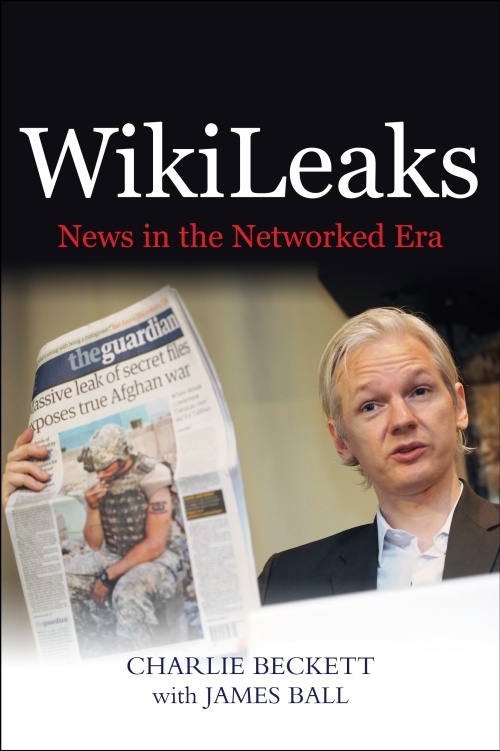WikiLeaks is the most challenging journalistic phenomenon to have emerged in the digital era. It has provoked anger and enthusiasm in equal measure from across the political and journalistic spectrum.
Its use of new technologies and its methods of disseminating information raise profound questions about the role of journalism and its future in the contemporary world. What are the responsibilities of the journalist? What are the limits on freedom of expression? How far does the public’s “right to know” extend?
These and other questions are tackled in Charlie Beckett and James Ball‘s Wikileaks: News in the Networked Era (Polity, 2012), which eschews fixation on the personalities of the key players in favour of engaging with the substantive issues.
Charlie Beckett is director of Polis, the journalism and society think-tank in the Department of Media and Communications at the London School of Economics and Political Science. Before POLIS, Charlie Beckett was a programme editor at ITN’s Channel 4 News editing coverage on 9/11, 7/7 and the RTS award-winning series of live News From Africa broadcasts before the G8 in 2005. He was a senior producer and programme editor at BBC News and Current affairs for ten years, making documentaries and news programmes at On The Record, Public Eye, Panorama, Breakfast News and News 24. James Ball is a data journalist working for the Guardian investigations team. He joined the Guardian from Wikileaks, and the Bureau of Investigative Journalism.
I recently met Charlie Beckett to talk to him about the book. To listen to the complete interview, click here. To go direct to specific questions, click on the links below.
1. I began by asking Charlie to take us back to 2006, when Wikileaks was launched. How clear were its intentions at the outset? Click here to listen [2:56].
2. Next I asked what drove Wikileaks in time to collaborate with traditional media such as the Guardian and the New York Times. Click here [2:07].
3. Attempts to crowd-source the analysis of data in Wikileaks’ possession didn’t really work. I suggested to Charlie Beckett that this pointed to the enduring value of traditional journalism in sifting, evaluating, contextualizing and presenting information. Click here [1:57].
4. Clearly there were personality clashes between Julian Assange and some of his media partners. But beyond that, did the tensions which became manifest point to Wikileaks’ fundamentally different way of seeing the role of journalism in the internet age? Click here [3:15].
5. Charlie Beckett refers to Wikileaks as an entity rather than an organization. I asked him to explain more about its nature. Click here [2:03].
6. Is it too early to talk of Wikileaks’ influence on both old and new media? Click here [2:28].
7. In conclusion, I wondered if Wikileaks had highlighted the fact that both old and new journalism had their shortcomings. Click here [1:36].

